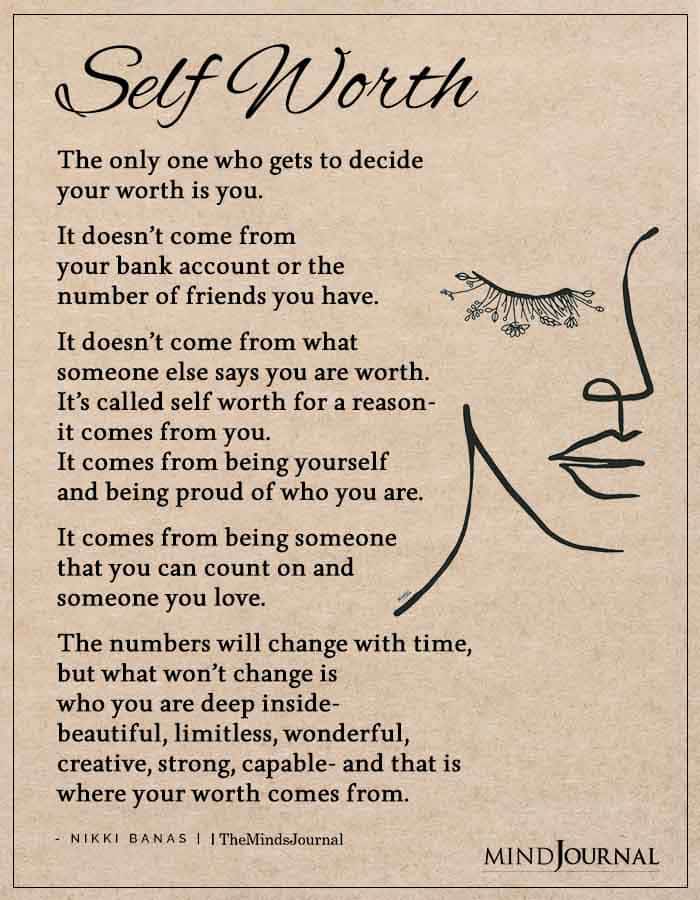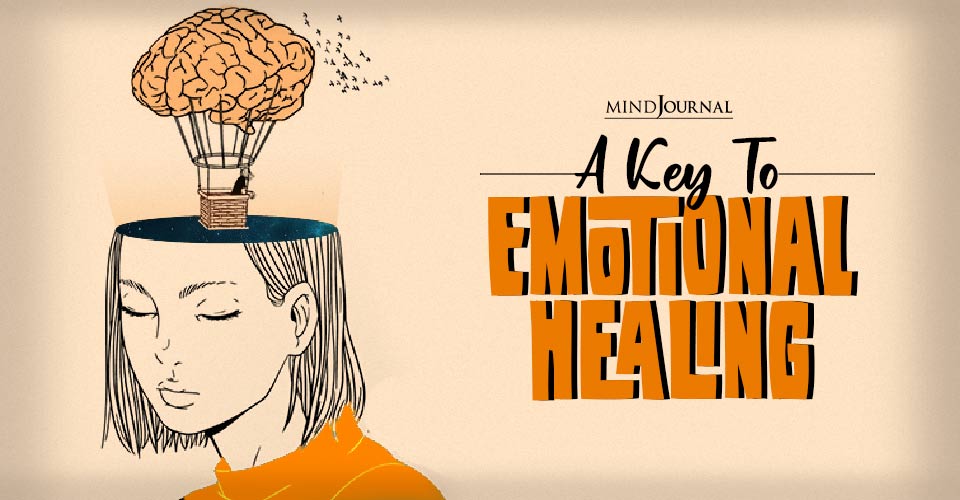Our sense of worthiness is the major key trait of having a blissful life. Once we know our worth, it reflects on our confidence and attitude. It makes us remember that we are worthy of happiness. Outside of the box of external validation is where our emotional healing begins.
Did you know that virtually every emotional wound is intertwined with issues of worthiness? In fact, feelings of unworthiness keep us from creating the lives we most desire. Worthiness is the key to emotional healing!
In order to heal our emotional wounds and consciously create, we must conquer our fears of unworthiness, but in order to do this, we must first understand why we are programmed to feel unworthy.
Like most “subconscious programs” the Worthiness Program is often passed down, unknowingly from our caretakers, but even, on the rare chance, that you did not inherit this program, by the time you are in first grade, the program officially begins.
On day one of first grade, we are taught that there is right and wrong, deserving and non-deserving, and passing and failing, all adding up to either worthy or not worthy.
Year after year, with every test and evaluation, we must prove our worth. But not just worthy to move on to the next lesson, the next grade or to graduation, we are asked to prove that we are worthy of approval, acknowledgment, appreciation, and even love.
If we do what we are told and we fit in with the group dynamic, we receive rewards and our emotional needs are met. However, if we think for ourselves, and we do not fit in, no rewards come; leaving us feeling emotionally punished by disapproval, disappointment, and the withholding of love by those in authority. In other words, we are deemed unworthy.
Society teaches us that worthiness is directly connected to our future and ongoing success in the world. Therefore, we must possess worthiness in order to have a purpose, make money, and attract a life partner; just as being poor, having no partner, or no direction in life directly relates to unworthiness.
Related: 4 Strategies For Dealing With Fear and Live a Courageous Life
By the time we go out into the world on our own, we are deeply programmed to believe that others must find us worthy in order for us to succeed. In fact, we believe that our survival depends on the world agreeing that we are worthy. Of course, infinite conditions dictate worthiness depending on environment, culture, religion, and society.

We might easily meet the conditions of one group while missing the conditions of another; thereby being worthy to some, but not to others. Maybe we even alter ourselves artificially in different situations and relationships so that our worthiness quotient increases. Of course, the cost of pretending to be someone that we are not in order to please others always involves some level of shame and secrecy.
If we always feel self-conscious about others’ expectations, albeit partners, parents, or bosses, and we change our behavior accordingly in order to get approval and be deemed worthy, we must always be on guard.
So even if we are authentic in some situations, we must be ready to alter or hide our real selves if the situation should suddenly change; for example, if we run into a co-worker while on vacation or a parent drops by unexpectedly.
Related: How To Boost Your Self-Esteem Quickly: 12 Simple Tips
In this way, we can never really let go and relax; we must stay in a constant state of underlying anxiety in order to be able to shift identities on the fly – just to be worthy in this moment.
If we don’t meet the real or imagined conditions that others place on us, we could lose employment, be abandoned or experience ridicule. In this way, being spontaneous or authentic in all areas of life could be the most dangerous thing one could do – in the eyes of worthiness.
Even if you succeed and find your worth in a career or a relationship, for example, you will always need that outside source to feel worthy – this places a great deal of dependence on something you cannot control, and so you live in fear, placing all sorts of stress on the other person or external situation.
The real problem lies in the impossibility of proving worth, because you cannot prove worth.
Your Worth Is Unconditional
Worth cannot be proven or disproven because it resides at the core of every being. There is nothing that you can do in order to be more or less worthy than you intrinsically are. If you spend the rest of your life sitting on a rock, you are no less worthy. Your worth is unconditional and guaranteed. This is what they failed to tell you in school.
The mere act of attempting to prove worth keeps you in a space of experiencing unworthiness because, in the quest to prove your worth, you must first believe that you are unworthy. It is like chasing the carrot on the stick and never getting it. In trying to prove your worth, you are really running from the fear of unworthiness, and this keeps you trapped in the worthiness program.

Worthiness is the core issue for a long list of challenges in life
Feelings of unworthiness cause co-dependency, addiction, depression, illness, victim-hood, abuse, lack of confidence, poor communication, power issues, obesity, indecision, confusion, panic attacks, abandonment issues, trust issues, eating disorders, relationship issues and the list goes on and on.
Virtually every issue imaginable is entangled with the issue of worthiness. Healing a worthiness issue can be the ultimate cure for so many of life’s problems, including issues of health and prosperity.
There is a direct correlation between knowing your worth and your level of prosperity. People who do not know their worth often experience scarcity because they do not feel worthy of prosperity, while those who know their worth are able to attract unlimited abundance, simply because they feel worthy of it. At the core of all abundance issues are the issue of worthiness.
Related:The Childhood Wounds We Carry In Adulthood, When We Were Deprived of Love
Worthiness is also directly tied to self-love.
We are told to love ourselves and that self-love is the answer to most of life’s problems, and this may be true, but you cannot love yourself if you do not feel worthy of that love. You also cannot allow others to love you if you do not feel worthy. This is the number one cause of relationship issues.
What if you could make a Quantum Jump and heal numerous issues with just one shift? That shift is turning off the Worthiness Program.
How To Turn Off The Worthiness Program
Subconscious programs are created when a series of strong beliefs are supported in reality through emotional experiences and perpetuated over time. If the program goes unquestioned, as most do, it grows stronger and stronger.
If everyone around you is being run by the same program, it strengthens the morphic field of the program and even makes the program seem “normal” – if everyone is the same, it must be normal.
Realated: Rejection: Why You Must Not Let Others Behavior Affect Your Self Worth
The way to turn off a program is to claim your power over it. No matter how powerful something may seem, there is nothing that has power over you. You have the power to change anything in your life.
In order to turn off the worthiness program, you must stop acting like your worth is conditional – and you must stop believing that you need to improve or change in any way, in order to gain worth. Looking to the outside world of people or things for your worth keeps you trapped in a vicious cycle with no way out.
1. The outside world cannot give you worth!
In fact, no one can give it to you and no one can take it away. This means that you must stop making your worth dependent on anything or anyone. You must claim your worth once and for all, and own it forever – without conditions.
Even though it appears that the worthiness program is external, and it seems as if something is being done to you, this is not true. The worthiness program is an internal program, and it is fueled by your inner critic. In order to turn off the program, you must rid yourself of negative self-talk and self-judgment.

2. When you stop doing to yourself what the world does to you, the world will stop doing it to you.
The outer world can only reflect the inner world. To get off the worthiness wheel of fortune, you must release your fear of failure and embrace the courage to be different.
Instead of judging yourself and waiting for the world to judge you, above all, love yourself and value yourself, whether you are wrong or right, whether you fail or succeed, whether you fit in or you are completely eccentric.
It takes courage to find yourself unconditionally worthy but you are the only one who can do it.
If you have difficulty claiming your worth, at the very least stop pursuing it. In fact, instead of spending the rest of your life trying to prove your worth, what if it was okay to be unworthy? What if you just gave in to unworthiness?
This may sound like a silly thing to say but if you have the courage to give in to unworthiness by giving up the search for worth, the illusion of conditional worth will shatter, and you will likely discover that you are already worthy.
3. Owning Your Worth Changes Your Life!
When you are no longer pursuing paths or people in order to feel good about yourself, you become empowered. This means that no one has power over you, and your choices exponentially open up. If you no longer need others to find you worthy, you can do whatever you desire without having to worry about what the world says.
This also means that you free all the people who once had the power to give you worth or take it away. As you do this, your energy dis-entangles and you take your power back from everyone – and everything.
If you no longer need degrees, credentials, or possessions to make you feel worthy, you are freed from a self-imposed prison. You can still have these things, but your worth is no longer contingent on any of them. Your worth is not dependent on anything – that is the point!
Related: 15 Ways To Be Kind To Yourself (Especially When Feeling Down)
Discovering yourself to be intrinsically worthy allows you to heal all issues that manifested because you believed you were unworthy. Worthiness results in emotional healing – releasing worry, fear, stress and even depression, allowing you to become open, authentic, confident, and happy.
As you discover yourself to be unconditionally worthy, your level of prosperity increases and all your relationships improve, as you experience so much more love for yourself and from others.
Remembering that you are unconditionally worthy is a short cut to spiritual growth because you are no longer tied to the material world through needing it to give you worth. Unconditional worth also connects you to who you really are, while at the same time activating your intuition, allowing you to receive powerful inner guidance.
Owning your worth can be the magic key to an ultra-successful life. When you are no longer looking to the outside world for your worth, you are free to create what you desire. Free to love who you want to love, free to follow the path of your heart, free to express yourself, and free just to be you – whoever that might be, and you might be surprised who that is. Knowing your worth allows you to tap into your power to consciously create the life of your dreams.
The thing is, there is nothing to do, and that is the point. Your worth is intrinsic. Right now, you can drop all your preconceptions about worth, take a deep breath and remind yourself that you are worthy. As you say, I Am Worthy over and over again, a deep part of you begins to awaken, shaking loose the binds that kept you from emotional freedom. You have all the power to free yourself by owning and claiming your worth.
Your Gift Of Worthiness To The World
Your mission in life is to find yourself worthy so that you can go out into the world and show others how to find it for themselves, just by modeling unconditional worthiness in the living of your life.
If you are raising children, be conscious of not hooking them into the worthiness program and teach them that they are unconditionally worthy – encourage them to think for themselves.
You can also help to release the people in your life from the worthiness program by loving them and accepting them exactly as they are. This means as you rid yourself of negative self-talk, self-judgment, and self-criticism, you must also stop judging others, no matter what they do.
Related: The 5 Types of Self-Talk Your Brain Likes Best
Seeing everyone as 100% worthy right now creates the space for others to break free. This is the greatest gift you can give to any human being.
As you release the search for conditional worth and you embrace your birthright of unconditional worth, you naturally realign with a higher frequency of worthiness; a knowing grows inside you that shows you that we are all intrinsically perfect and worthy beings.
As you discover yourself, and everyone else, to be unconditionally worthy, life as you once knew it, is transformed before your eyes, and you are free to live your life as it was meant to be. This is how we transform humanity into the New Dream of Peace and Harmony on Earth.
Written By: Nanice Ellis Originally Appeared On: Nanice.com Republished With Permission









Leave a Reply